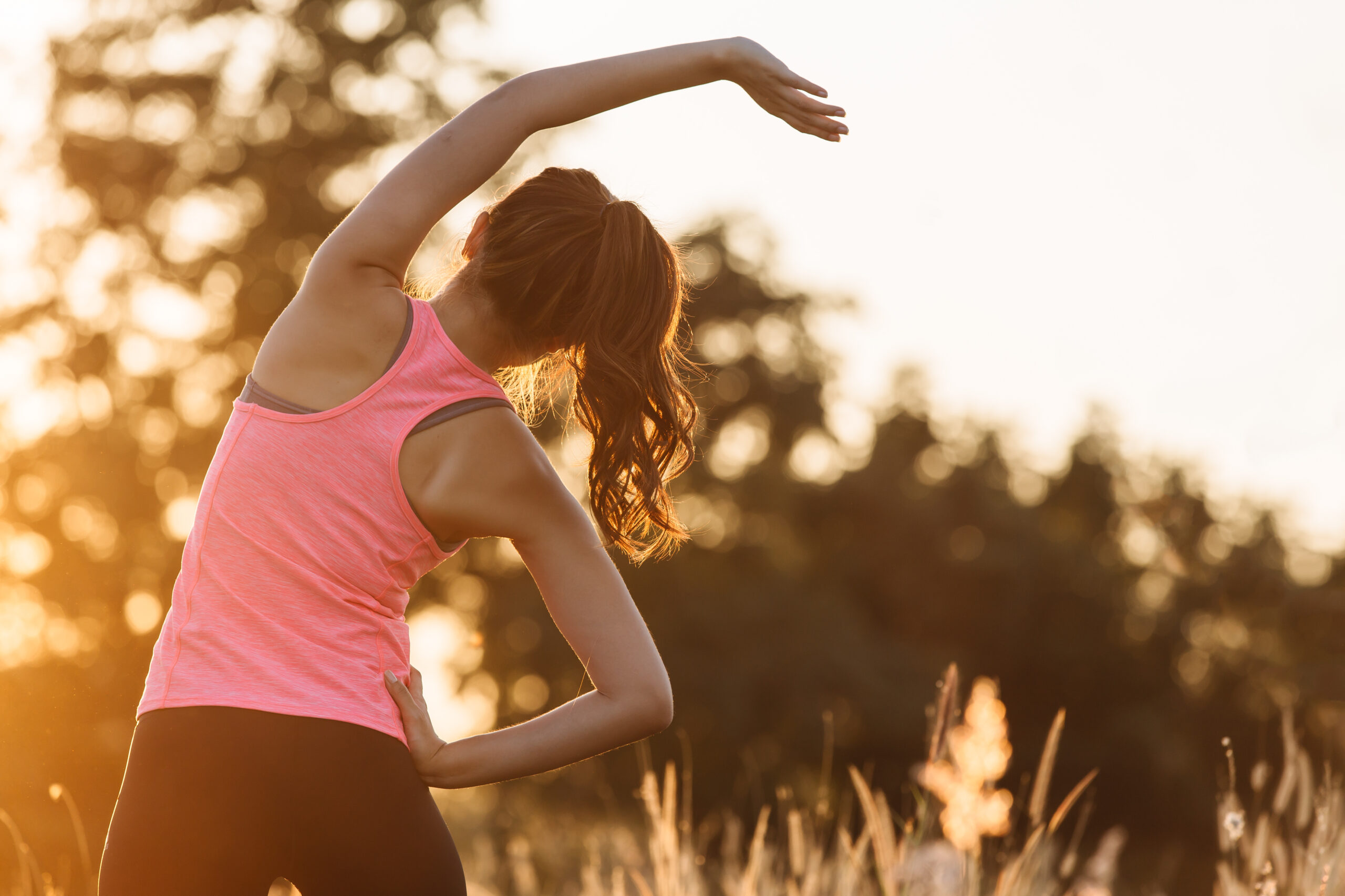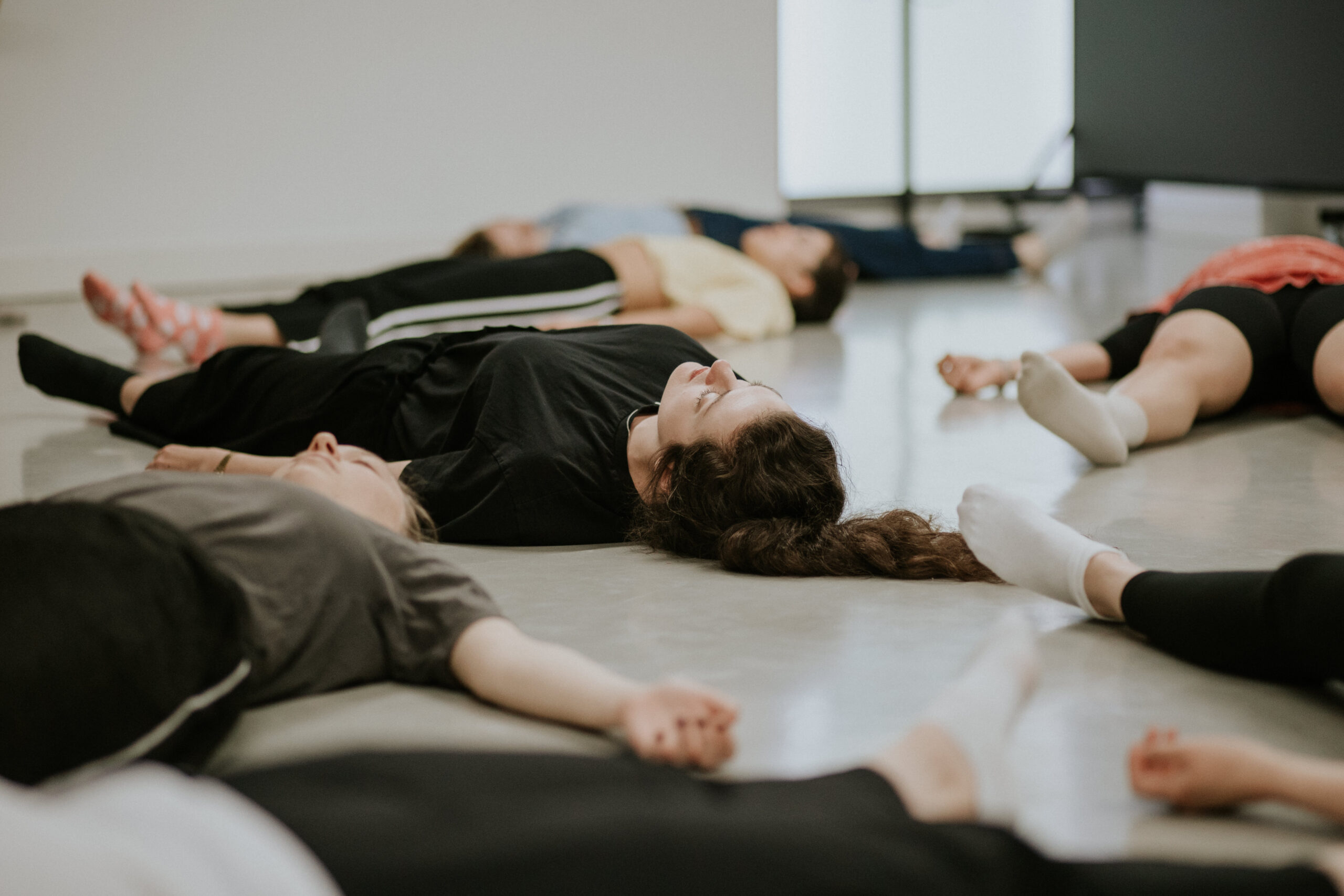Why fitness is important in acting and tips for actors to keep fit and increase their energy.
An acting career is incredibly tiring and physically demanding. With all the preparatory work that a performing job requires – from learning lines to character analysis – actors often forget how physically exhausting the rehearsal process can be, not to mention the physical exertion required to perform.
Whether you’re acting on stage or shooting on set, the hours are long, you’re constantly on your feet and certain roles require you to change your natural physicality or sing, dance and act simultaneously for two hours straight. All of this requires physical resilience and stamina.
Implementing fitness training into your lifestyle as an actor will help to preemptively build these skills, keep you healthy, help you look after your body, and ensure that you have the stamina needed to hit the ground running for that next audition, rehearsal, or performance. But the life of an actor is busy, and adding another task to your schedule can be overwhelming and expensive.
Here are some simple ways to implement fitness training easily and cost-effectively into your lifestyle to thrive in your acting career.
Why is Fitness Important for Actors?
It’s essential for actors to keep fit for three main reasons:
- To make sure you’re a healthy human being with a sustainable lifestyle.
- To keep up with the intense physical demands of being an actor – rehearsing, training, performing eight shows a week, or being on set for long hours.
- To improve your connection to your body and physicality, making you an even better performer.
Other benefits include improved mind-body connection, muscle memory, mental clarity, cognitive ability, energy levels, strength and flexibility. Fitness training also does wonders for your mental health and stress management, helping you stay motivated and focused as you pursue a career in this challenging industry.
Types of Fitness Training for Actors
If you’re looking to put together or add to your fitness routine, here are some ideas you could try, and their benefits for your acting career:
Mobility and Flexibility
To fully embrace your role, whether in theatre or film, you need to ensure that your body has a range of motion, can move freely and can adapt to take on the new physicality of different roles.
Mobility and flexibility training can benefit this greatly by increasing range of motion, making moving easier, reducing restriction of motion (which is great for characterisation and physical theatre) and helping to prevent injury. Mobility and flexibility training also reduce stiffness and improve joint health, ensuring your body is healthy, happy and pain free to tackle rehearsal and performances with gusto.
You could try Pilates, yoga, dancing, flexibility training or functional training to incorporate this element. Here are some great free resources you could try at home:
- Stretches with MadFit:
- Mobility with Adam Richardson
- Yoga With Adriene
Core
The core is the central part of your body (your abdominals, pelvis, hips and mid-lower back). A strong core helps to stabilise your body and movement and improves balance and posture. Training your core builds a strong connection to the body, improves coordination and ease of movement and helps to prevent injury. Core strength is an incredible foundation for all movement and is hugely beneficial in an acting career.
A strong core ensures an actor’s movement (in both performance and rehearsals) is performed safely and sustainably, so that repeatedly performing these motions night after night is attainable. Connecting to your core allows you to improve your posture and understand how to physically adapt yourself to create new postures and stances for different roles, all while ensuring injury is prevented.
Pilates is an amazing way to train your core. You can also incorporate core training at home and the gym through resistance, functional and/or strength training. Some simple core exercises include planks, dead bug variations and crunches. Try out some free Pilates online with:
Strength
Building strength is essential in preventing injury and protecting the joints. Actors are required to perform at their physical optimum repeatedly, day after day (often with very little recovery time).
Whether in rehearsals, training or final performances, your body is pushed to the limit and requires strength and resilience to ensure that you can keep performing full-out and doing your job to the best of your ability throughout your career. It increases the power behind movement, builds muscle, improves muscle endurance and has the added bonus of also improving mobility.
Strength training can be incorporated in a number of different ways: using body weight, resistance bands, light weights, calisthenics or utilising heavier weights and weight machines. You can do strength training at home with:
- Joe Wicks
- MadFit
- School of Calisthenics
Cardio
This improves endurance, heart health, lung capacity, breathwork and stamina. It also reduces fatigue and lowers blood pressure. Cardio does wonders for your health and is an essential training element to include as an actor to sustain you through acting contracts and demanding rehearsals and performances.
Cardio can be included in the form of running, cycling, dancing, Zumba, swimming, skipping, rowing, and power walking, to name a few. Try these cardio workouts at home for free:
Incorporating Fitness into Your Daily Life
There are so many ways to keep fit as an actor, but with things like learning lines, attending auditions, rehearsing, going to workshops and filming self-tapes, it can sometimes be a challenge to fit exercise into your daily routine.
Here are some top tips to help make exercise part of your day-to-day life:
Choose a form of exercise you enjoy
There’s no point forcing yourself to do something you hate, especially when you could reap the same benefits from a different form of training you love. Plus, you’ll do wonders for your mental health at the same time.
Do exercise with a friend
This is also a great way to stay motivated, keep it fun, and incorporate balance into your day-to-day routine.
Use your time wisely
Fitness doesn’t have to take up a huge amount of time. Go for a 10-minute run, do a short but intense HIIT workout in your bedroom, start your morning with a quick stretch, use long waiting hours to sneak in a 10-minute ab blaster set, or do your physio/injury prevention exercises while you’re stuck in the waiting room.
Get creative
If you don’t have access to a gym or equipment, there are so many ways to get creative. For example, give some of the free resources linked in this article a try, use tins of vegetables or full water bottles instead of weights or find a local park to exercise in (especially during warmer seasons).
Warm-Ups and Cool Downs
As an actor, it’s essential to warm up and cool down your body before and after rehearsals, performances or training. Warming up safely before performing is crucial to ensure that you don’t injure yourself, for example, by pulling a muscle. Not only that, but warming up also increases performance capacity, enabling you to fully embrace and commit yourself physically to the performance ahead.
A good warm-up raises heart rate and overall body temperature, improves range of mobility and increases blood flow and oxygen supply to your muscles – readying them for activity and giving you a chance to mentally prepare and focus before the performance or rehearsal ahead.
A warm-up should progress gradually and not exceed 15 minutes (5-10 minutes is ideal). Here are some key factors to include to get the most out of your warm-out to optimise your performance:
- A few minutes of cardio to gradually elevate heart rate and generate physical heat like star jumps, high knees, jumps on the spot, walkouts or skipping
- Dynamic and static stretches
- Core activation
- Exercises to specifically familiarise your body with what’s to come. For example, if you’re about to perform a role that demands pirouettes and turns, incorporating a short balance exercise would help your body and mind get ready. Similarly, if you’re performing a role with a hunched posture, incorporating some exercises to activate your core and mobilise your back would help to familiarise your body with the physicality it’s about to take on, and will help to increase mobility and prevent injury.
After every rehearsal, performance or training session, it’s important to cool your body down. This, like a warm-up, also prevents injury, helps to optimise post-exercise recovery and maintain flexibility so that you can come back ready to perform at your maximum again the next day. A good cool down should:
- Gradually reduce the intensity of the physical work you’ve been doing, slowly and safely lowering your heart and breath rate.
- Include stretching to reduce stiffness and maintain mobility and flexibility.
Alongside your training, make sure you’re hydrating, eating nutritiously, sleeping well, and looking after your mental health. All of this will help set you up for a healthy, sustainable lifestyle and a successful future in acting.
Implementing fitness training into your schedule can be simple, enjoyable and cost-effective. Start building your stamina and physical resilience today, try some of the free resources in this article, and invest in yourself, your health and your career. You’ve got this!
Take a look at our website for more tips and advice to support your wellbeing and mental health as an actor.





